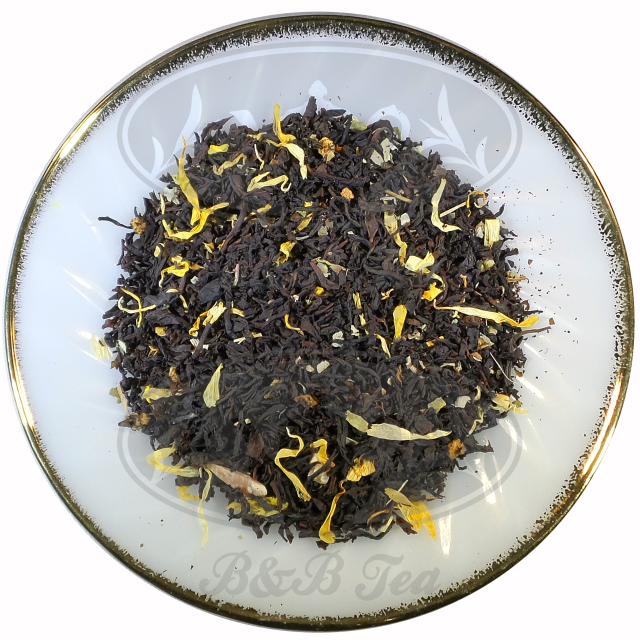- Flavored
- >
- Peach Apricot Black
Peach Apricot Black
SKU:
$1.25
1.25
29.25
$1.25 - $29.25
Unavailable
per item
Description
We can't think of a fruit combination that sounds juicier. A flavory and tasty combination of mellow peaches with deep full flavored apricots. Our Peach Apricot blend is ideal for iced tea in any season, but also delicious hot with your choice of sweetener.
Tell Me MoreIf you can think of a fruit combination that sounds juicier, more delicious, or more sumptuous than peach apricot, please let us know. And evidently we aren't the first to hold that opinion. In China, archaeologists working during the time of Chairman Mao discovered evidence of people enjoying apricots and peaches together at least 4000 years ago. From those ancient times, both fruits eventually made their way westward in the form of cuttings and seedlings, traveling via Persia to the Mediterranean regions of Italy and Spain. In Italy, both fruits flourished and rose in such popularity that they became noted favorites of various rulers of the Roman Empire. So what makes the fruits go so well together? The key is in their delicate, intensely sweet flavor profiles. The characters of both fruits together blend into a harmonious explosion of citrus-y goodness. And what makes them blend so well with a high grown Ceylon tea? The answer to that question is the natural acidity, and astringent qualities of both. Try a cup for yourself and discover what makes this one of our most special flavored teas. Peach and apricot - 4000 years of history can't be wrong!
|
Brewing for Best ResultsIdeal Brewing Temperature: 209°F/98°C.
Minimum Brewing Temperature: 194°F/90°C. Bring filtered or freshly drawn cold water to 209°F/ 98°C. Place 1 slightly heaping teaspoon of loose tea per 8 oz of fluid water. Steep 3-5 minutes according to taste (the longer the steeping time, the stronger the tea). Acceptable Pairings: Milk / Sweetener |
origin
Tea(s) From: Sri Lanka Region(s): Nuwara Eliya, Dimbula, Uva 98% Ethical Tea Partners ingredients
Luxury Ingredients - Black tea, Papaya, Apricot, Peach pieces, Blackberry leaves, Calendula, Sunflower petals, Natural flavors. iced tea instructions
Per Serving: Bring filtered or freshly drawn cold water to 209°F/ 98°C. With and infuser, use 1 slightly heaping teaspoon of loose tea per 6-7 oz of fluid water. Steep 5 minutes. Add filtered hot tea to 16 oz glass filled with ice. (Some luxury teas will turn cloudy when poured over ice). Per Pitcher: Makes 1 Quart. Bring filtered or freshly drawn cold water to 209°F/ 98°C. Place 6 slightly heaping teaspoon of loose tea in a heat resistant container. Pour 1 ¼ cup of prepared water over the tea leaves. Steep 5 minutes. With a fine mesh sieve, filter the hot tea liquor to the serving pitcher filled with ice. Add cold filtered water to top off. (Some luxury teas will turn cloudy when poured over ice). brewing tips
Making an amazing cup of tea requires several things. High quality tea, filtered or freshly drawn cold water, correct water temperature, time of infusion, and filters/infusers. Unfiltered water or too hot of water can ruin the best of teas. Always use filtered or freshly drawn cold water. Any flavor from water treatments or heavy minerals such as lime or calcium can taint the water. Brew at the ideal temperature. Too hot of water can scorch the leaves and produce a bitter brew. If you find that the tea is still bitter following the recommended brewing temperature, try lowering the brew temperature another 5 to 10 degrees. Use infusers that allow the tea leaves to fully expand and has full contact with the water. Ditch the tea bags. Know the steeping time for your tea. Too long of steeping can make your tea bitter and undesirable. Too short of time will make a weak tea. Don’t make tea in the microwave. food safety
We strongly recommend using filtered or freshly drawn cold water brought to a rolling boil when brewing all types of tea. Today’s water has been known to carry viruses, parasites and bacteria. Boiling the water will kill these elements and reduce the potential incidence of water-borne illness. Cool the water to the ideal brewing temperature before brewing. |

